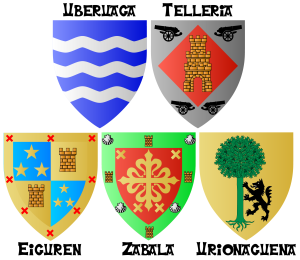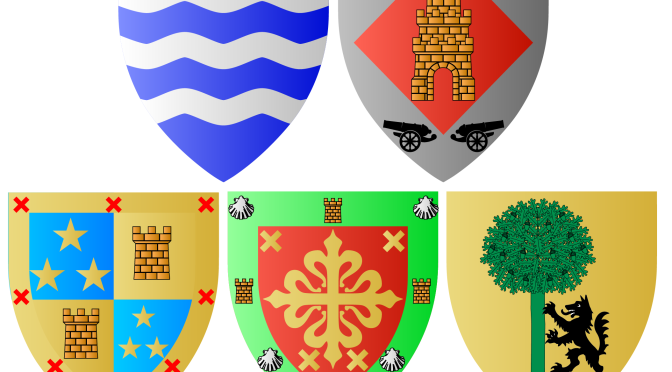All Basques are nobles, or so it’s said. This is one reason that Basques were so prevalent in the military – they had opportunities only afforded to nobles. The reality is a bit more complicated. Only some Basques, or better said only some provinces, enjoyed this so-called universal nobility. And for most, it didn’t really change their lives significantly as they still toiled away at the same jobs they had anyways. But, it did open doors for many and is yet another remarkable feature of the Basques.

- It was in the Fuero Nuevo, or New Charter, of Bizkaia of 1526 that universal nobility was first granted to all Bizkaians. Before 1526, a majority of Basques were already considered noble in most areas, except for Araba where only 25% of the local population were noble. But, in much of the rest of the region, some 50-70% were already. The Fuero Nuevo made that 100%, in Bizkaia.
- The reasons are complex. As argued by Arturo Aldecoa, the Fuero Nuevo arose from the previous setbacks of the higher nobility in various conflicts. They were losing power to the towns in the Juntas Generales. Aldecoa says that the Fuero Nuevo essentially fortified the power of the jauntxos – the rulers of the countryside – and that universal nobility was a bone for the common man, to placate the townsfolk so that the jauntxos, in reality, kept their power.
- Universal nobility didn’t change the daily lives of many people. While they were now effectively equal under the law, they didn’t have the resources and the like of the jauntxos and had to keep working to survive.
- In 1610, Gipuzkoa followed suit and all residents were declared noble, though already in 1527 there was a proclamation that only nobles could own a house in the province, effectively making all Gipuzkoans nobles. Araba and Nafarroa never made the same move, so, strictly, universal nobility is not something that all Basques shared, just those from Bizkaia and Gipuzkoa.
- Even in Bizkaia and Gipuzkoa, universal nobility was not universal as it didn’t apply to all people. To be a noble, one had to have a family tradition in the province and had to have “purity of blood.” They had to be connected to a baserri. They also had to be “free of any evil blood such as Jewish, Muslim or any other sect condemned by the Holy Office of the Inquisition.” Eventually, it was decreed that, ever since the Biblical flood, Gipuzkoans had been Gipuzkoans, hadn’t mixed with anyone, and thus were inherently noble.
- Of course, being a noble conveyed several privileges, including exemption from paying certain taxes, performing non-naval military service, and enjoying ancient privileges. Thus, Bizkaians and Gipuzkoans who found themselves in other parts of Castile would often try to prove their nobility to gain these privileges. Later, only nobles, true residents of the provinces not just mere inhabitants, could participate in government, effectively excluding those inhabitants from the political process.
- Another consequence of universal nobility that I’ve heard of, but haven’t found a source for, is that what we would call traveling salesmen then went door to door, trying to sell coats-of-arms to the new nobles. After all, what is a noble without a coat-of-arms? Strictly, coats-of-arms are connected with a specific person and can be passed on to their eldest son, but are not associated with an entire family or a given surname.
A full list of all of Buber’s Basque Facts of the Week can be found in the Archive.
Primary sources: Hidalguía universal e igualitarismo by Arturo Aldecoa, Deia; Soria Sesé, María Lourdes. Hidalguía universal. Auñamendi Encyclopedia. Available at: https://aunamendi.eusko-ikaskuntza.eus/en/hidalguia-universal/ar-59328/; Universal nobility, Gipuzkoa Museo Birtuala
Discover more from Buber's Basque Page
Subscribe to get the latest posts sent to your email.


